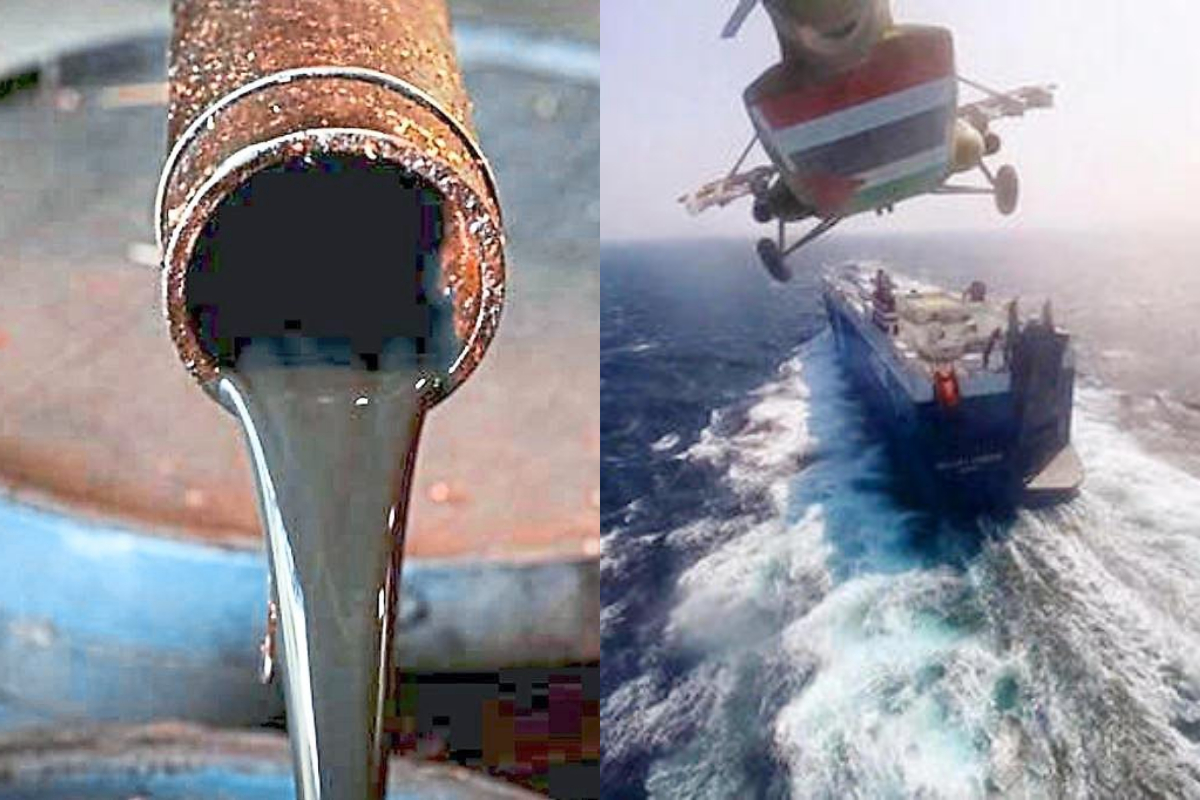- Houthi rebels in Yemen are reportedly targeting vessels believed to be headed for Israel.
- US Defense Secretary Lloyd Austin urged more nations to contribute to security efforts.
- The Red Sea is crucial for oil, natural gas shipments, and consumer goods.
Analysts are warning that recent attacks by Houthi rebels in Yemen on commercial ships in the Red Sea could result in higher oil and goods prices.
Some companies have halted shipments through the affected route, prompting Maersk, the world’s second-largest shipping line, to reroute vessels around Africa’s Cape of Good Hope.
In response to the disruption, the US has initiated an international naval operation called Operation Prosperity Guardian, with the participation of countries such as the UK, Canada, France, Bahrain, Norway, and Spain.
US Defense Secretary Lloyd Austin convened a virtual meeting with ministers from over 40 countries, urging more nations to contribute to the security efforts.
“These reckless Houthi attacks are a serious international problem and they demand a firm international response,” he said.
Due to the worsening security situation, the UK’s Ministry of Defence announced that the Royal Navy destroyer HMS Diamond will be part of a new task force.
The Red Sea, crucial for oil, natural gas shipments, and consumer goods, spans from the Bab al-Mandab Strait, known as the Gate of Tears, in the south near Yemen’s coast to the north where the Suez Canal is located.
The Houthi rebels in Yemen, backing Hamas in its conflict with Israel, claim they are targeting vessels they believe are headed for Israel. This has raised concerns as the Red Sea is a vital global shipping route.
Despite companies like Investor Chemical Tankers, whose Swan Atlantic vessel was attacked on Monday, asserting that their ships have no connections to Israel, concerns persist.
Even with the initiation of the international operation to secure safe passage through the Red Sea, Maersk has expressed uncertainty about when it will resume journeys along the route. The situation remains fluid and unpredictable for commercial shipping in the region.
Maersk said, “A case-by-case assessment will take place to determine whether adjustments need to be made – including diversions via the Cape of Good Hope and further contingency measures”.
While it was pleased to hear of international efforts to improve security in the area, “at this time it remains difficult to determine” when it would return to the Red Sea route.
The alternative route, around the Cape of Good Hope, adds about 3,500 nautical miles to the journey and takes about 10 days longer.
[embedpost slug=”red-sea-on-edge-houthis-threaten-global-trade-eu-and-uk-cry-foul/”]


















